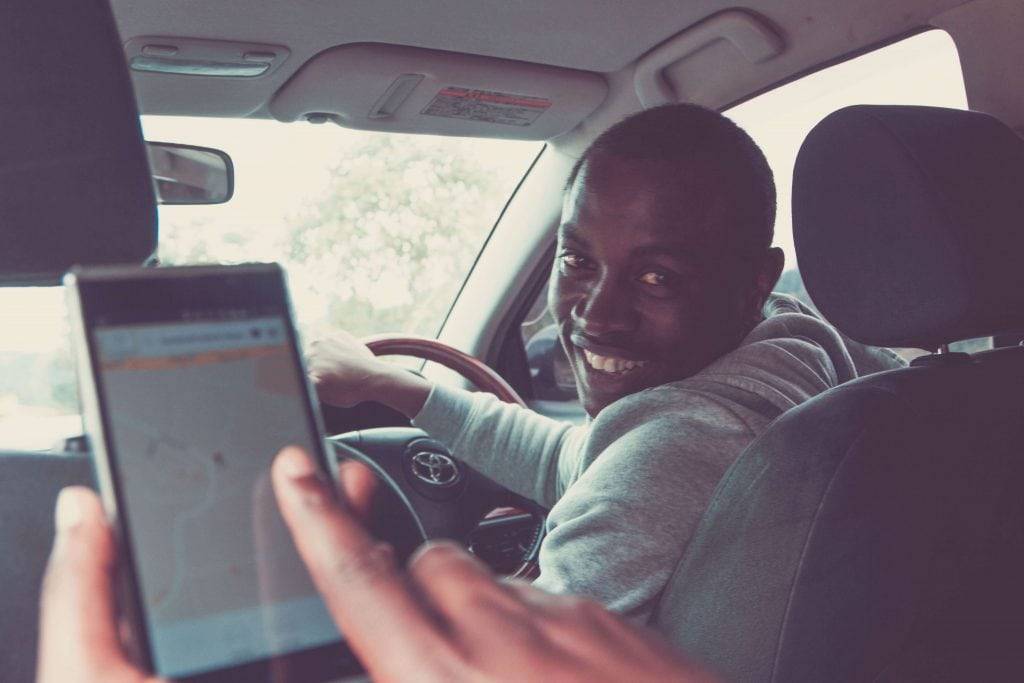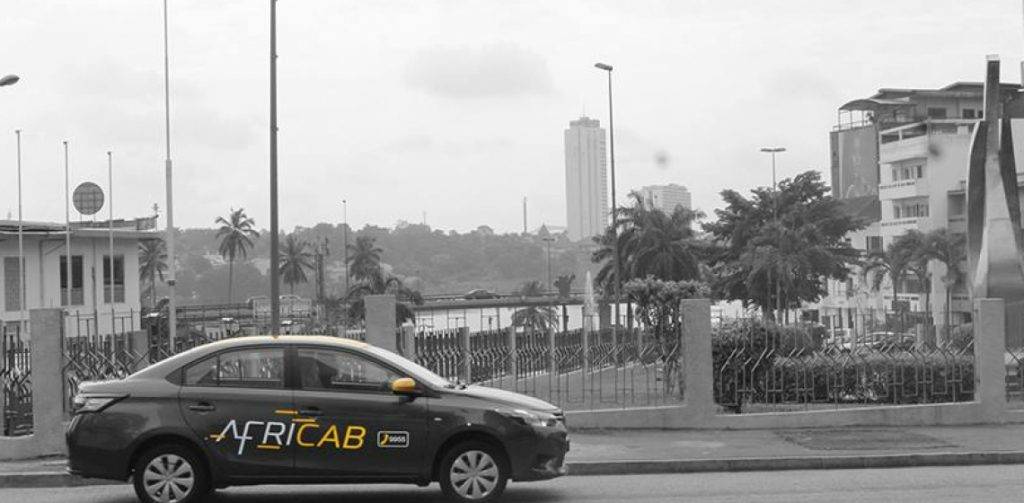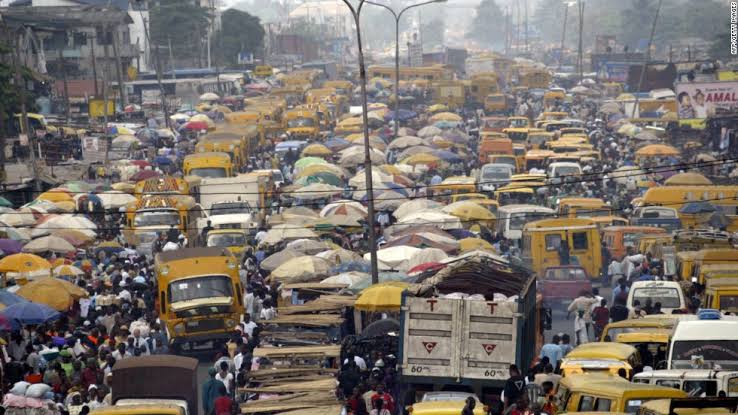Carpooling Versus Ride-Hailing: How They Are Making A Difference In African Cities

Uber. Bolt (Taxify). InDriver. All these are some of the “cab-hailing services” vying for the African market share. While the bike-hailing sector is at its best so far and bus-hailing is still trying to find its feet, carpooling has been almost forgotten. But with the growth of technology and the significant mobile penetration in the country, that sector may soon spring back to life for the better of African cities. With the already thriving e-hailing sector, many already think they are living in the future African urbanities.
Clearing The Confusion

There is a bit of a difference between ride-hailing and ride-sharing. In many cases, the two are used interchangeably. Ride-hailing simply involves booking a car, bike or bus for “personal” pickup and drop-off. In this case, the driver does not take other passengers, nor does it make stops along routes.
Meanwhile, ride-sharing, by contrast, is synonymous with carpooling. Literally, it is the process through which a rider shares a vehicle with other riders. Being that it is not exclusive to a single passenger, the driver can make stops to on-board other riders.
For so long now, the Giant of Africa’s ride-hailing scene has been rather dramatic. From launches to fundraising, poaching to inter-company relations, and fines to government squabbles, concerned startups have been trying to make the most of the continent’s largest population. In the wake of heated competition, it seems as though foreign ride-hailing companies have the upper hand compared to indigenous alternatives. That may be a result of perception, lack of funding, poor service delivery, or just the very nature of the market.
As for carpooling, there is a new startup in town. Soole Rides was launched in September 2019 in what was a quiet introduction to its ride-sharing services. In an exclusive interview with WeeTracker, the founder, Mayowa Palmer, said the business is still in beta testing and is looking to launch fully in the coming months. The process on the platform is simple – allowing users to book rides with drivers going to the same city. So, if you do not want to go through the hassle of waiting in motor parks or spending too much booking a flight, you can look for a driver traveling your way.
To test the service, Soole Rides launched its beta route from Lagos to Ibadan and from Ibadan back to Lagos. These two bordering cities are seemingly the most popular, habited, and developed in the western part of the country. “Since we started, we have been getting inquiries as to where we are going next. We will be reviewing the poll data and comments to ensure we give our customers what they want. Soole Rides is here to serve the needs of our riders,” the company said.
The African City Saga

Africa is a massive market if you ask Shivachi Muleji, General Manager of Swvl Kenya, who also believes that ride-hailing companies have had quite significant success in African cities. When asked regarding the hurdles set before e-hailing in the continent, he suggested that challenges are yet opportunities to bring about ways to make the sector great. From ORide to GoKada and PlentyWaka to even newly-launched Soole Rides, it is evident that betting on changing the way Africans commute comes with a fair share of ups and downs. However, it is nothing most of these startups are not aware of, because they prepare in cash, in numbers, and in ideas.
“As you scale, you begin to worry about how to keep the quality up. It is a challenge that has made us find some innovative solutions around building our product in Kenya, for example. We have had to build completely innovative quality frameworks and had to find completely out-of-the-box solutions to find new sources of supply. Besides those two, there is, of course, the question of legislation. How do you have conversations early on with the government, so they understand your business? We have seen a lot of goodwill from the government, and a strong commitment to finding solutions that work for both players and the government and are happy about that,” Muleji told WeeTracker.
For Soole Rides, launching to serve between Lagos and Ibadan is a test phase-like decision, but it does not come without ordeal. With proper marketing and by ensuring the ramifications of such a service are well taken care of, the startup will not meet the same fate as its predecessors who saw a light at the end of their respective tunnels but were not able to reach it. The legislation problem Muleji pointed out is just the tip of the iceberg, as this is a whole glacier of obstacle which is reportedly worse in Nigeria, despite being the easiest place to do business – well, on paper.
Concerning the way e-hailing services can transform African cities, the first instance is the realization on the part of governments that their policies alone will not usher us into urban mobility. These leaders need to take cognizance of the fact that they must be willing enough to allow for and embrace innovative solutions in the logistics sector. In Muleiji’s opinion, the mobility platforms that we see today actually stand a good chance at transforming the way transportation works. Take Uber, for example. It was only until the firm launched its boat-hailing service in Lagos to compete with GBoat that the governor, Babajide Sanwo-Olu, revealed his administration’s intentions to develop a helicopter service in Africa’s busiest metropolis.
“There is the obvious add on of increasing utilization for the fleet that we have now. So that not everybody needs to have a car, and we can use existing capacity more efficiently. And of course, this has an impact on emissions. But the more transformative solutions, in my opinion, are bus-hailing platforms like Swvl. These are changing the game. Suddenly you have people getting a comfortable and convenient experience, without having to pay the USD 5 that we pay in ride-hailing. And you are also moving huge numbers of people at once. The extent to which you ease the pressure on existing infrastructure is quite significant,” underlines Muleji.
Background
Going by what’s said on its website and confirmation of the narrative from the firm, Soole Rides was birthed to solve a problem encountered by one of the founders. Mayowa Palmer narrated how he always arrived late to work in a factory. “The interesting thing is that the factory was just 45 minutes away from where I needed to find a vehicle. After researching the situation, we realized that most of the vehicles at the park took a long period of time to get filled with passengers. Yet there were many private cars with lone drivers going in the direction he was going but would not lift passengers due to safety concerns”.
Indeed, to a considerable extent, there’s a problem with the motor park process. If a traveller does get on board the first or second bus leaving the park- usually between 5 to 7 am – there is every chance they’d spend a couple of hours waiting for the next coach to hit the road. This flaw is often as a result of the driver waiting for the vehicles to get filled or sorting tickets with Transunion workers, otherwise called Agberos. With Soole Rides, you can book a ride days before, agree on a pickup location, prepare for the journey, and meet up with the driver at a set time. Though it is not private, it is a more comfortable way to travel.
On the present test route, each ride’s price is fixed and costs between NGN 2 K and NGN 3K. It may (or may not) be pricier than what traditional models offer, but ease, speed, and comfort are the considerations. “All users first download the app and sign up as a rider. Then you select your route and find the best-matched driver and time. After selecting the number of seats required, you pay, and you get confirmation of the time and pick up point. Riders and drivers meet at the specified time and pickup point, and you start your trip,” Palmer iterated.
Soole Rides, for now, is a privately-funded company. In less than a month, the startup says it is impressed with how far it has already come while declining to reveal its user numbers. With backgrounds in engineering, hardware, and software development, the founders are open-minded to inking partnership deals, though it is going solo for now. “We are marketing everywhere and working to increase the number of users aggressively,” the company revealed.
Soole Rides is not launching into a virgin market. Prominent among other carpooling services in Nigeria’s commercial capital is GoMyWay, but the startup shut down operations in September 2019. Meanwhile, Jekalo – launched in 2015 by Bolarinwa Motoni, is also an indigenous app-based service, but the company has been somewhat missing in action. Also, it is unclear whether these services support inter-city or inter-state travel. We contacted Uber to ask them if passengers can travel with their service, and they said it all depends on the agreement between the driver and the rider. But, again, the fees would be high.
When it comes to e-hailing, security is at the top of questions. “With some of the user information that we gather at registration, we can understand most of the riders and drivers. The drivers and their cars go through additional screening to ensure public safety as well as security. When you ride or drive with Soole Rides, reaching your drop off point is our top priority”.
So Carpooling Can Make It Too?

Is the carpooling sector coming back to life? It seems Soole Rides will, with time, tell the answer. GoMyWay intended to run a free service for a year or two, after which it would grow its user base. But those dreams were buried two years ago. The managers did mention that funding was one of the primary reasons they decided to wind up the company. This new service might just make a difference and join in the race to transform African cities.
It seems as though carpooling also has a chance to thrive in South Africa. Last year, Cape Town-based carpooling startup Jumpin Rides was in the headlines raising money from local and international business angels. The USD 137 K funding was meant to help the service enter into new markets. Just like Soole Rides, Jumpin connects drivers with spare seats to passengers who are headed the same way and willing to put in something into fuel costs. The drivers on the platform go through a review process, and passengers can connect with them to discuss the trip details.
Pauline du Paty, Romain Diaz, and Antoine Paillusseau co-founded the company with a broader vision to help South Africans save money on medium-long distance travel. Jumpin also has input in reducing carbon emissions by way of filling up empty cars. The startup, as at the time of VC consideration, claimed to have 10,000 users. 25 percent of them were reportedly drivers, while passengers made up the balancing 75 percent. The startup which started operations in 2016 is part of the Far Ventures portfolio, a Cape Town-based studio and accelerator.
Jumpin Rides’ Du Paty and her team found a gap in the South African landscape when they noticed the rise of alternative mobility solutions globally. After thoroughly studying the market, they realized Cape Town and Johannesburg were among the most congested cities globally, and that the current transportation options were lacking and expensive, hence showing the need for a peer-to-peer ride-sharing solution. Du Paty noted that the growth of the sharing economy alongside the urbanization of Africa brings about a necessity in peer-to-peer ride-sharing as a relevant solution to ease traffic congestion.
On whether there is a market for carpooling in Africa, Muleji said even Africa at large stands to benefit substantially. By now, it is no longer news that the world’s population would grow to 2.2 billion by 2050, half of which Africa will account for with an additional 1.3 billion people. This makes the continent and its fastest-emerging markets a great target, even for the global players like Uber and Bolt. While many startups have launched in the sector this year alone, Swvl confirms that it sees potential in Nigeria. The bus-hailing firm’s rumoured Nigerian launch is, contrary to hyped urgency, is still in the pipeline.
“There are tens of cities with more than 3m population. Africa has had a nearly explosive population growth over the last several decades. And frankly, infrastructure has not been able to keep the same pace. So how do you still move around several million people each day with the same capacity you have had for 10 years, for instance, and this is the question that cities have to answer. So yes, Nigeria is just one market, but there are easily 15 other cities that could benefit a lot from our kind of business,” Swvl’s Muleji explained.
North Africa has Careem and Ousta going toe to toe with Uber. There is also Tem Tem, an Algerian ride-hailing service that raised USD 4 Mn in Series A in September this year. There is also more space for the growth of these services in places such as Sudan, where Uber is yet to venture into. Khartoum-based Mishwar is already operating in the country, pending when other players decide to take on its roads. West Africa is highly concentrated with a taxi-hailing app, up to 14 of them, in fact.
Feature image courtesy: skift.com